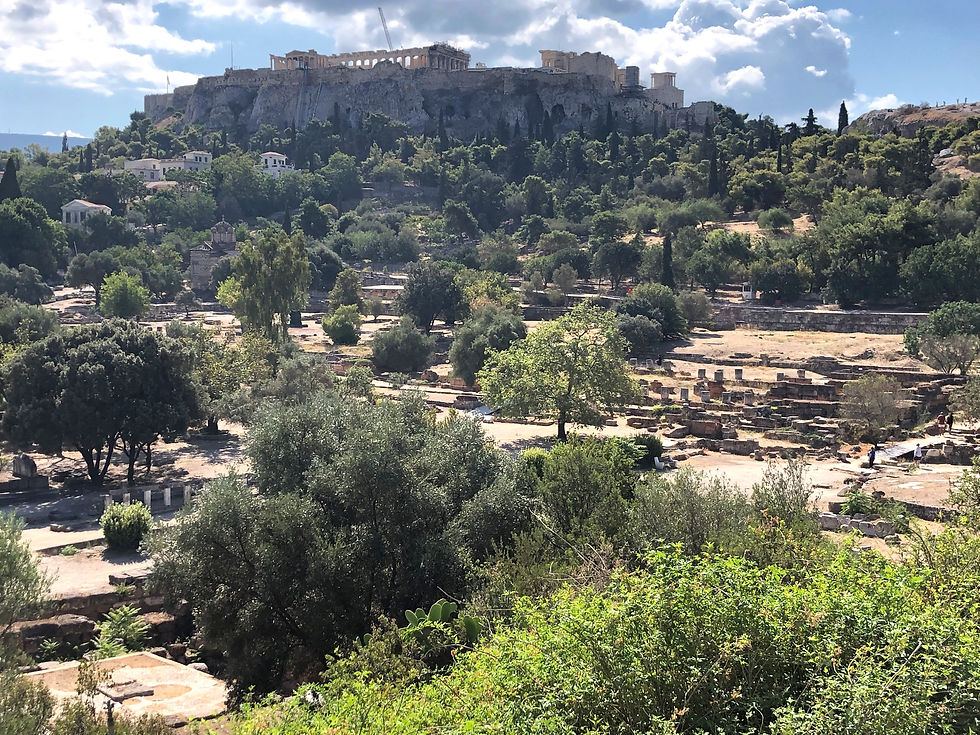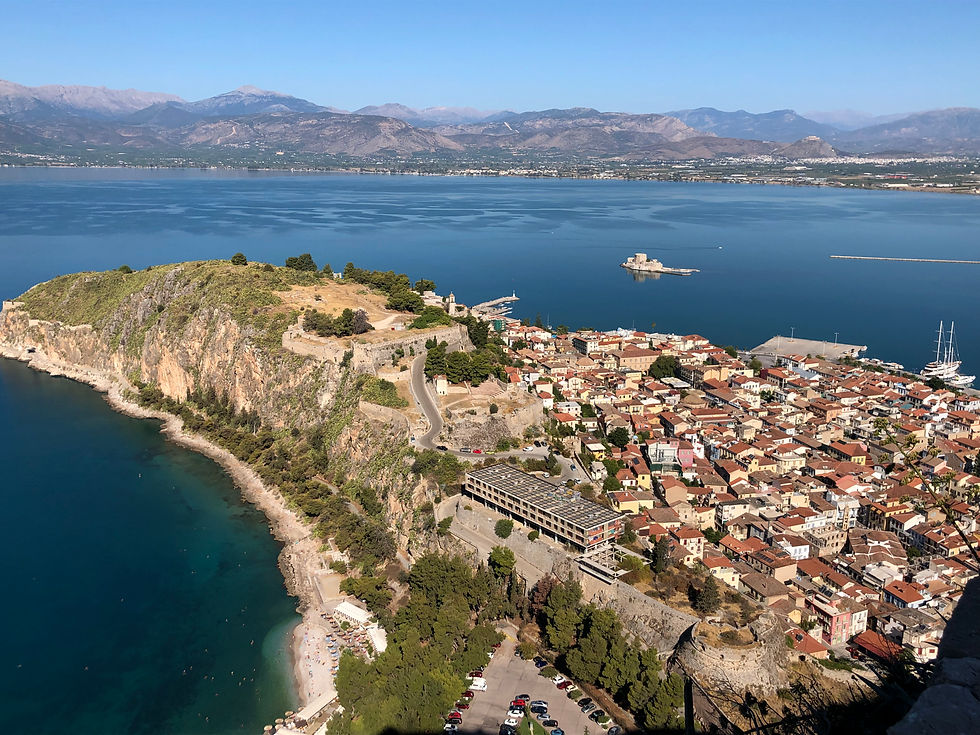A visit to Greece
- therockettman

- Apr 18, 2022
- 4 min read
Updated: Jul 12, 2025

Travel to the Peloponnese Peninsula
We have had Greece on our bucket list for some time, but with increasing overcrowding on many of the islands, we became more and more reluctant to contribute to the overtourism issues. Then a friend told me about the Peloponnese, an enormous peninsula rich in history to the southwest of Athens. After doing some research (including learning that the viticulture in this area is very robust and the gastronomy heavenly) we planned and booked a ten-day, self-touring itinerary of the region.
A trip to the Peloponnese will more than likely begin and end in Athens. Because we had a ton of hotel loyalty points to use, we stayed in a mainstream, branded hotel in the upscale Kolonaki district near to museums and embassies. If we were to do it again, we would have chosen the Plaka area, which is closer to the obligatory attractions of the Acropolis and the Ancient Agora. It also was the district where most of the restaurants we wanted to eat in were located.

Central Athens is noisy and chaotic, so we were pleased that we kept the visit short on both ends, venturing only to the aforementioned sights. Since Athens was our gateway to the Peloponnese, we took the opportunity to see the city’s most important tourism assets, but frankly we could not get out fast enough - literally. The downside of a self-touring holiday is the high anxiety of renting a car and trying to find your way safely out of, and back into, the capital. The signage made it already very challenging but the erratic driving of the locals made it a veritable ‘white-knuckle’ ride!

Wine culture of the Nemea region
The first priority of our itinerary was a brief stopover in the Nemea region to experience the wine culture. A word of caution if you do the same – you should not expect to drop in on the more impressive of the wineries in this area. Although the area is promoted as an important ‘wine route’, most vineyards are not geared toward or staffed for transient tourism. We were not warned of the need for reservations ahead of time, which meant that only one of the wineries on our list could accommodate us at the last minute – and that was only because we had already been turned away by one of our choices and promptly called ahead to the other, pleading for them to make an exception since we were only passing through.

Visit to Nafplio
From there, we arrived to Nafplio, which has an old town comprising an intriguing network of squares and cobbled streets and a delightful seaside atmosphere. This town is an excellent base for exploring the region’s history, including the imposing Palamidi Castle overlooking the town and harbor front. This castle is a massive Venetian citadel built in the early 18th century, containing a series of mini-forts inside so that defenders could retreat to strategic areas of the complex if overrun in another section.

One compelling archaeological site in the Nafplio area is Mycenae, which hosted an entire Bronze Age culture in a self-contained and sophisticated citadel structure. Another is the ruins of Epidaurus (aka Epídavros), which represents an important therapeutic and religious sanctuary of the 4th and 3rd century BC. However, it is more renowned for a stunning outdoor theatre that remained undiscovered for centuries after the sanctuary ruins were found.

Visit to Monemvasiá
A trip to the Peloponnese must include a stay of at least one overnight in Monemvasiá, a fortified town built more than 1,000 feet above the sea. Some call this delightful seaside relic - which was in its prime in the 15th century - the ‘Gibraltar of Greece’. Most of the lower town is beautifully restored with lovely shops, authentic restaurants and quaint hotels. Visitors must stop at the gates of the walled town to drop off their luggage and then find a parking spot along the one-mile causeway that leads to Monemvasiá.
Visit to Ancient Olympia
After a short respite for relaxing sun and beach activities along the Mani Peninsula to the south of Kalamata, we ventured on to the historic center of the original Olympic Games. Ancient Olympia is an impressive historical antiquity in the western part of the Peloponnese – the site of the archaeological ruins is bigger than the town of Olympia - and it is captivating to wander a site that once stood as the epicenter of worship and athletics. The original games were established in 776 as both a festival to honor Zeus and an athletic competition, and Ancient Olympia hosted these games for approximately 1,000 years.

If you want an off-the-beaten-path experience of Greece, filled with antiquity and excellent food and wine, then the Peloponnese is the answer!






Comments